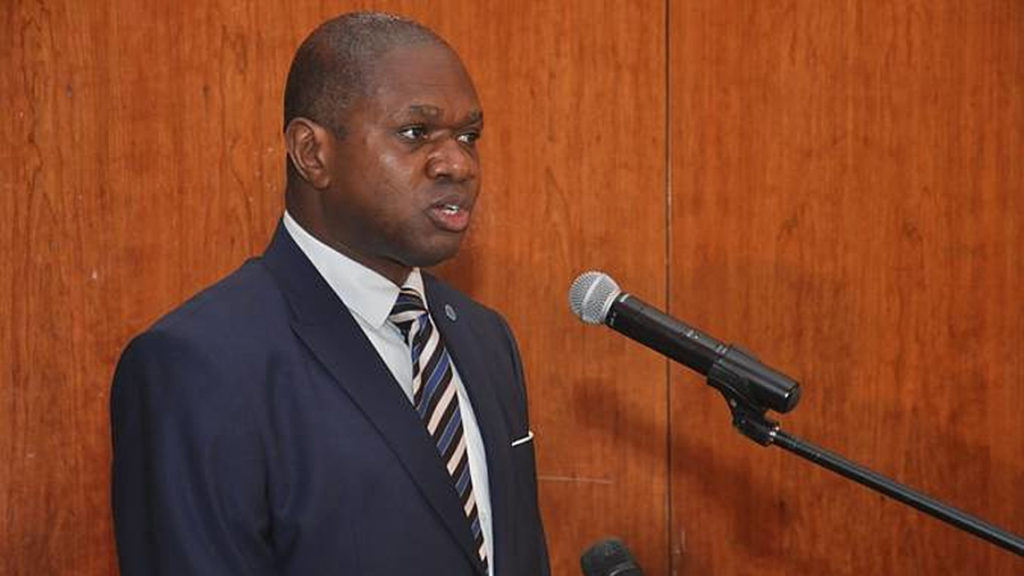The United Nations Industrial Development (UNIDO) has challenged the Waste Management Society of Nigeria (WAMASON) to ensure the enforcement of National Policy on Waste Management developed by the Federal Ministry of Environment.

Mr Jean Bakole, the Regional Director, UNIDO, gave the advice on the sidelines of the roundtable talk and exhibition on Plastic Waste Management in Nigeria on Wednesday, September 25, 2019 in Abuja organised by WAMASON FCT Council.
Bakole, represented by Mr Yomi Banjo, environment expert of UNIDO regional office, described the policy as important document that could ease the operation of the society.
“We supported the ministry of environment in developing National policy on solid waste management and this is a very important policy to WAMASON.
“I call on the society to ensure in the revitalisation of this policy, you should ensure that this policy is approved, and it becomes a legal document which you could use as an insurance for your operation.
“You can’t overemphasise the synergy between the organised private sector and the government. Whatever policy that is formulated cannot be successful if the private sector is not included in that policy.
“So, it is important that whenever government is formulating its policy, regulations and legislation that it carries the private sector along like the WAMASON,” Bakole said.
Bakole, who described the society as key to achieving zero waste, however urged members to take the bull by the horn by displaying management skills associated with plastic waste to the populace.
He further urged them to collaborate with government in any policy and programme to ensure that plastic waste was seen as huge resources and valuable industrial material rather than refuse.
According to him, waste is not just about dumping refuse, is converting resources that you think are not useful to you to resources that are useful to another set of people in the industry.
Bakole, who noted that UNIDO had been a stakeholder in the country regarding environment, said that the organisation had completed some projects in the past, while others were at the verge of completion.
He assured of the commitment of the organisation to implement a project tagged: “Resource efficiency and human production” early 2020.
According to him, the project has a lot to do in waste management, it has a lot to in changing the mindset of industries from how they can manage their waste to achieving zero waste.
The regional director further reiterated the continuous commitment of UNIDO to support the Federal Government with expertise in the area of environmental management, especially in industrial management.
Mrs Kitan Oluwagbuyi, FCT Councilor of WAMASON said the roundtable and exhibition were to avail members of the society, non-members and other stakeholders in recycling plastic waste the opportunity to showcase their products.
Oluwagbuyi, who identified plastic waste as evident in fashion industry, art, construction of houses, public toilets, area of energy recovery amongst others, emphasised that this would enable government to have balance policy with regard to banning plastic.
She emphasised that considering this varying contribution of plastic to the economy and the public the policy on ban of plastic, if fully developed implemented, it would bring number of people that live on plastics out of penury.
“We organise this roundtable and exhibition on plastic waste management because discussion is going at the national level to have a ban on plastic.
“So, we wanted all our members and non-members who have initiatives, practicing, working with plastic waste in different forms to showcase their work to the Ministry of Environment so that there will be balance in the policy development for plastic life cycle.
“The programme is basically a showcase of what was currently going on and to upscale some of the initiatives on ground in the area where there are barriers.
“And the areas where we need support from the government, we will be able to in order to ensure we don’t bring number of people that live on plastics to penury,” Oluwagbuyi.
The programme was supported by Zero Waste, Institute for Physics and Ecology, Chanja Datti, Ministry of Environment, among others.
By Felicia Imohimi
